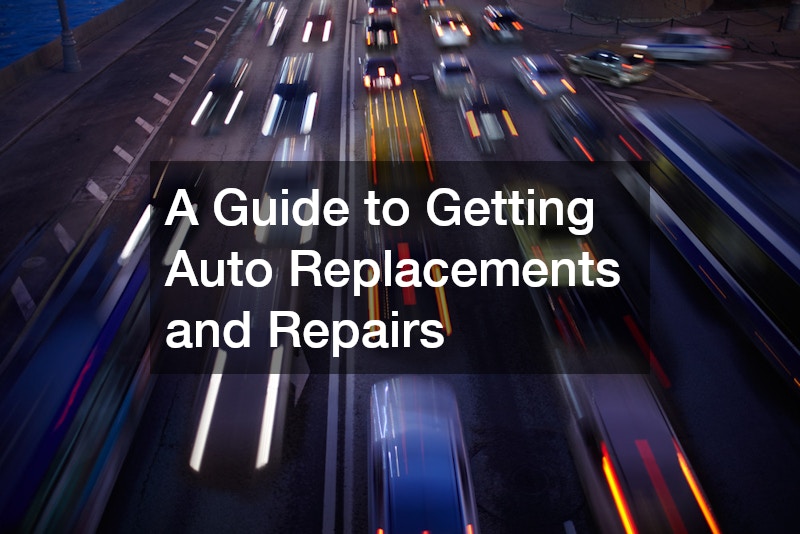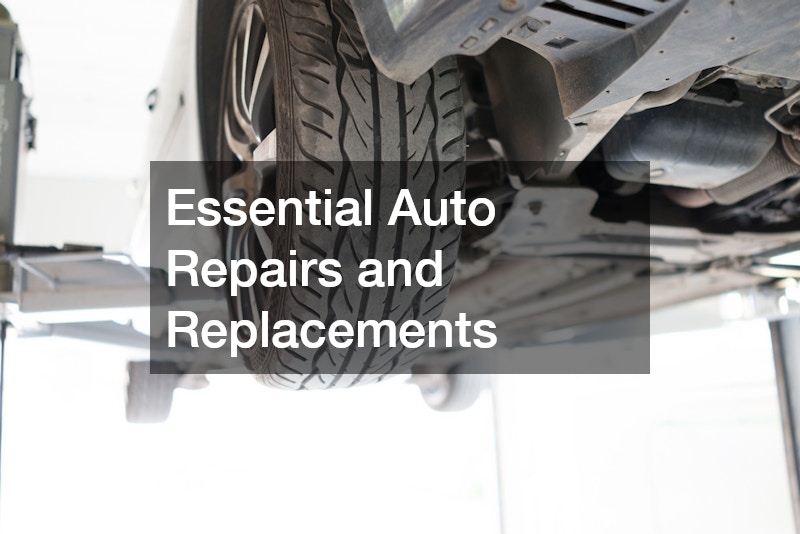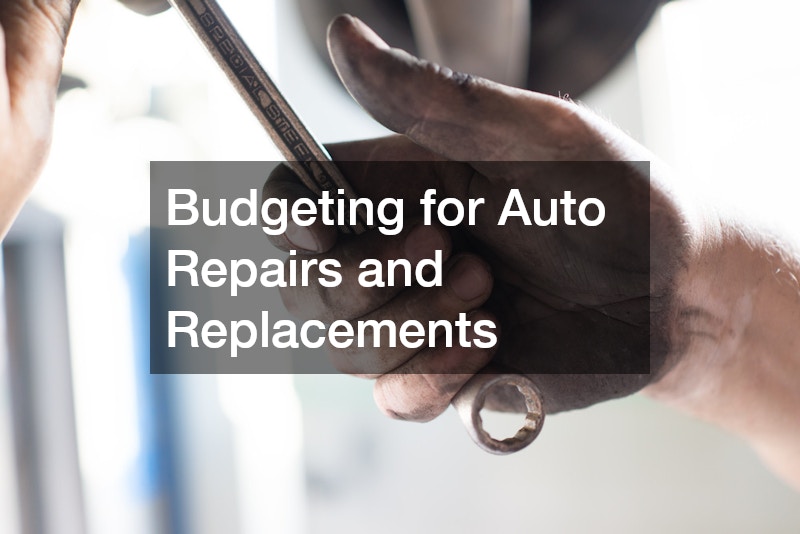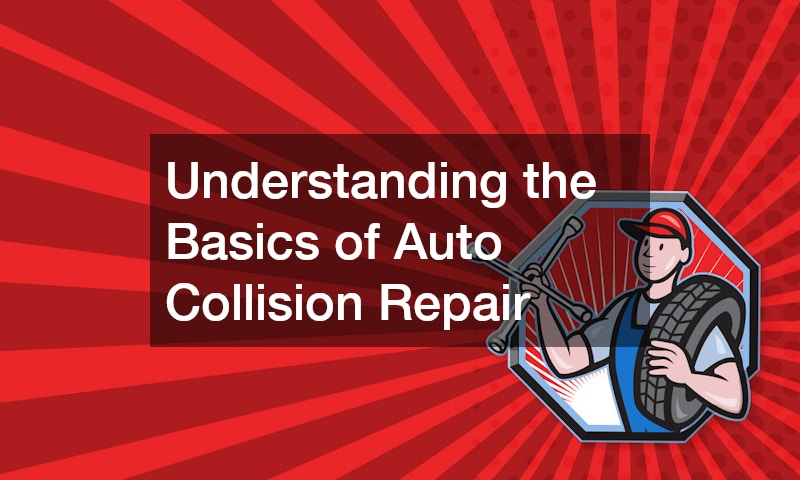
A Guide to Getting Auto Replacements and Repairs

Owning a vehicle comes with the responsibility of ensuring it stays in good working condition. This involves performing routine maintenance, addressing necessary repairs, and knowing when it’s time to replace parts. While some auto repairs are minor, others are more complex and expensive, so it’s crucial to recognize the signs of wear and tear early. In this comprehensive guide, we’ll discuss essential auto repairs, key signs to watch for, professional services you should hire, how to budget for these repairs and replacements, and what you can expect in terms of costs.
By staying proactive with your vehicle’s maintenance, you can not only extend its life but also avoid costly breakdowns and unexpected expenses.
Essential Auto Repairs and Replacements

Automobile maintenance encompasses various aspects of care, from small fixes to significant overhauls. Below are some of the most common repairs and replacements you’ll likely encounter during your vehicle’s life:
- Brake Repairs: One of the most critical safety components in your car, the brake system, requires regular maintenance. Over time, brake pads wear down due to the friction created when you stop your vehicle. Neglecting routine brake service can lead to worn rotors and, eventually, more severe issues. Regular local brake repair services can ensure your vehicle stops properly, keeping you and other drivers safe. In addition to replacing pads, brake repairs may involve checking the brake fluid, inspecting the calipers, and replacing any worn-out parts.
- Wheel Alignments: Maintaining proper wheel alignment helps ensure your vehicle drives straight and avoids unnecessary wear on your tires. Misaligned wheels can lead to uneven tire wear, cause your steering wheel to pull to one side, and decrease your vehicle’s fuel efficiency. You may need a wheel alignment if you notice your vehicle pulling to one side while driving or if you experience vibration in the steering wheel. Professional mechanics use advanced equipment to adjust the angles of the tires, ensuring they meet the manufacturer’s specifications.
- Windshield Replacements: Windshields play an essential role in the structural integrity of your vehicle, so keeping them free from cracks and chips is vital for safety. While minor chips can sometimes be repaired, more extensive damage will require a full windshield replacement. This is especially true if the crack obstructs the driver’s view or compromises the windshield’s strength. Many windshield replacement companies offer mobile services, allowing you to get the repair done at your home or office without any hassle.
- Auto Dent Repairs: Dents and dings are common, whether caused by shopping carts, hail, or minor accidents. While they may not affect the mechanical operation of your vehicle, they can significantly diminish its appearance. Moreover, untreated dents can eventually lead to rusting if the paint is chipped, as exposure to moisture can cause corrosion. Local auto mechanics or auto body shops can quickly repair small dents with paintless dent removal, while more severe damage may require filling and repainting.
- Auto Glass Replacements: Besides the windshield, your car’s side and rear windows may also require replacement if they are cracked or shattered. Broken windows can be dangerous, as they compromise your vehicle’s safety and security. Auto glass replacements are a crucial service for ensuring the protection of passengers and safeguarding your vehicle from theft or further damage.
- Engine Repairs: The engine is often referred to as the heart of the vehicle, and when it’s not functioning correctly, it can lead to significant problems. Common engine repairs include fixing oil leaks, replacing worn-out belts, or addressing overheating issues. Neglecting these repairs can lead to complete engine failure, resulting in a costly replacement. Engine repairs can vary widely in complexity and cost, so it’s essential to address warning signs like unusual noises, decreased performance, or the check engine light as soon as possible.
- Transmission Repairs: Your transmission is responsible for shifting gears and delivering power from the engine to the wheels. Whether your vehicle has an automatic or manual transmission, both can experience issues over time. Common signs of transmission problems include slipping gears, rough shifting, or a burning smell. Transmission repairs can be expensive, but ignoring these symptoms can lead to complete transmission failure, which is much more costly to fix.
- Fleet Repair Services: For business owners who manage a fleet of vehicles, fleet repair services are a critical part of maintaining operational efficiency. Fleet repair involves regular maintenance on multiple vehicles, including oil changes, brake inspections, and engine diagnostics. Scheduling regular maintenance for your fleet reduces downtime and ensures your vehicles remain reliable for deliveries, service calls, or transportation.
- Toyota Services: If you own a Toyota, it’s wise to visit an auto repair shop that specializes in Toyota services. These shops have technicians who are specifically trained to work on Toyota vehicles and often carry the parts required for repairs in stock. Whether it’s routine maintenance like an oil change or more complex repairs, such as engine or transmission work, Toyota services are designed to ensure your vehicle stays in top condition.
- Truck Accessories and Upgrades: Upgrading your vehicle with truck accessories can improve its performance and aesthetics. Popular accessories include toolboxes, bed liners, trailer hitches, and performance exhaust systems. These upgrades can increase the functionality of your truck and protect it from wear and tear, especially if you use your truck for heavy-duty purposes like towing or off-road driving.
Key Signs That Repairs or Replacements Are Needed

It’s important to monitor your vehicle for signs that repairs or replacements may be necessary. Catching issues early on can prevent more expensive repairs in the future. Here are the most common signs to watch out for:
- Squeaking or Grinding Brakes: If you notice a squeaking noise or grinding sensation when you apply the brakes, it’s a clear indication that your brake pads are worn down and need replacing. Ignoring this can lead to more severe damage to the brake rotors, making the repair more expensive.
- Pulling to One Side While Driving: When your car pulls to one side while driving straight, it’s usually a sign of misaligned wheels. This issue should be addressed with a wheel alignment to prevent further damage to your tires and suspension system.
- Cracked or Chipped Windshield: Small chips and cracks in your windshield can quickly spread if left untreated. A damaged windshield compromises visibility and safety, so it’s essential to address cracks by scheduling windshield replacements or repairs as soon as possible.
- Dents and Scratches: While minor dents may seem harmless, they can lead to rust and corrosion over time. It’s important to get auto dent repairs to maintain your vehicle’s appearance and structural integrity.
- Check Engine Light: The check engine light is one of the most common indicators that something is wrong with your vehicle. While the problem may be minor, such as a loose gas cap, it can also signal more serious issues like engine misfires or faulty sensors. It’s essential to get your vehicle diagnosed by a professional mechanic whenever this light appears.
- Trouble Shifting Gears: Difficulty shifting gears, slipping out of gear, or hearing unusual noises when shifting are all signs of transmission problems. Addressing these issues early can prevent further damage to the transmission.
- Leaking Fluids: If you notice oil, coolant, or transmission fluid leaking from your vehicle, it’s a sign that something is wrong. Leaks can lead to engine overheating or other mechanical failures, so it’s essential to have them addressed immediately by a mechanic.
Professional Auto Services You Should Hire

While some basic auto repairs can be done at home, it’s always best to rely on professional services for more complex issues. Here’s a breakdown of the key professionals you should consider hiring for your vehicle’s needs:
- Local Auto Mechanics: A trusted local auto mechanic is invaluable for handling everything from routine maintenance to complex diagnostics and repairs. By establishing a relationship with a reliable mechanic, you’ll have peace of mind knowing your vehicle is in good hands. Local mechanics can perform services such as oil changes, brake repairs, engine diagnostics, and more.
- Brake Specialists: For brake-related issues, it’s crucial to seek out professionals who specialize in brake repairs. Whether you need new brake pads, rotor resurfacing, or a full brake system inspection, these experts can ensure your vehicle’s braking system is functioning properly.
- Windshield Replacement Technicians: Windshield replacements are not a DIY job, as improper installation can compromise the structural integrity of your vehicle. Professional windshield replacement technicians have the tools and expertise to install your new windshield correctly, ensuring your safety.
- Auto Body Shops: For more extensive body damage caused by collisions or accidents, an auto body shop can restore your vehicle’s appearance. These shops specialize in repairing dents, scratches, and structural damage, ensuring your car looks as good as new.
- Fleet Repair Services: If you manage a business with multiple vehicles, partnering with a fleet repair service provider can help keep all of your vehicles in top condition. These companies offer maintenance and repair services tailored to fleet owners, ensuring minimal downtime and consistent vehicle performance.
- Toyota Services: For Toyota owners, it’s beneficial to work with a shop that specializes in Toyota services. These shops have technicians trained specifically to work on Toyota models, ensuring that your vehicle receives the best care possible with genuine Toyota parts.
Budgeting for Auto Repairs and Replacements

One of the biggest concerns for vehicle owners is managing the cost of repairs. With proper budgeting, you can avoid financial stress when your car needs repairs or parts replacements. Here’s how to budget effectively for your vehicle’s maintenance:
- Create an Emergency Fund: Setting aside a portion of your income each month for unexpected auto repairs is one of the best ways to stay prepared. Even if you don’t have major repairs every year, building up a fund ensures that you won’t be caught off guard when something goes wrong. Aim to save at least $500 to $1,000 for emergencies.
- Prioritize Preventive Maintenance: Regular maintenance is one of the most effective ways to prevent costly repairs in the future. Routine oil changes, tire rotations, brake checks, and fluid top-offs keep your car running smoothly and reduce the risk of major breakdowns.
- Use Automotive Chemicals Regularly: Keeping up with the essential automotive chemicals—such as engine oil, coolant, brake fluid, and transmission fluid—will help keep your vehicle in good working order. These chemicals are relatively inexpensive but play a crucial role in preventing costly repairs due to engine or transmission failures.
- Get Multiple Quotes: For larger repairs or replacements, it’s a good idea to get quotes from multiple mechanics. This allows you to compare prices and ensure you’re not overpaying for the service. Be sure to ask for a detailed breakdown of the cost, including parts, labor, and any additional fees.
- Consider Extended Warranties or Service Plans: If you plan to keep your vehicle for an extended period, investing in an extended warranty or service plan can help cover the cost of future repairs. Many auto repair shops offer service plans that cover routine maintenance at a discounted rate.
How Much Do Auto Repairs and Replacements Typically Cost?
Repair costs vary depending on the make and model of your vehicle, the type of repair needed, and the shop’s location. However, here’s a general idea of what you can expect to pay for common repairs:
- Brake Repairs: Brake pad replacement typically costs between $100 and $300 per axle. If rotors or calipers need replacing, the cost could go up to $500 or more.
- Wheel Alignments: A standard wheel alignment usually costs between $75 and $200, depending on the complexity of the alignment and the type of vehicle.
- Windshield Replacements: The cost of windshield replacements ranges from $200 to $400, but high-tech windshields with sensors or cameras can cost up to $1,000.
- Auto Dent Repairs: Paintless dent repair is an affordable solution for minor dents and costs around $100 to $300 per dent. Larger dents or body damage may cost significantly more depending on the extent of the damage.
- Auto Glass Replacements: Replacing windows or rear auto glass can cost between $150 and $500, depending on the glass type and installation process.
- Engine Repairs: Engine repairs can range from $500 to several thousand dollars depending on the severity of the issue. Replacing a timing belt, for example, may cost $500 to $1,000, while a full engine replacement could be $4,000 to $7,000 or more.
- Transmission Repairs: The cost of repairing or replacing a transmission is usually between $1,000 and $5,000, depending on the make and model of your vehicle.
- Fleet Repair Services: Businesses with fleets typically spend between $100 and $500 per vehicle annually on maintenance, depending on the size and type of vehicles in the fleet.
- Toyota Services: Regular Toyota services like oil changes, tire rotations, and brake inspections typically cost the same as general services. However, more complex repairs—like engine or transmission work—may be more expensive due to specialized parts.
- Truck Accessories: Adding truck accessories like bed liners, toolboxes, or custom exhaust systems can cost between $100 and $2,000, depending on the accessory and installation requirements.
Caring for your vehicle requires regular attention to both routine maintenance and more significant repairs. Whether you’re dealing with local brake repair, windshield replacements, or engine diagnostics, having a trusted local auto mechanic and setting aside funds for repairs is essential to keeping your car in top condition. By staying proactive and budgeting for future repairs, you can avoid unexpected expenses and ensure that your vehicle continues to serve you well for years to come.


